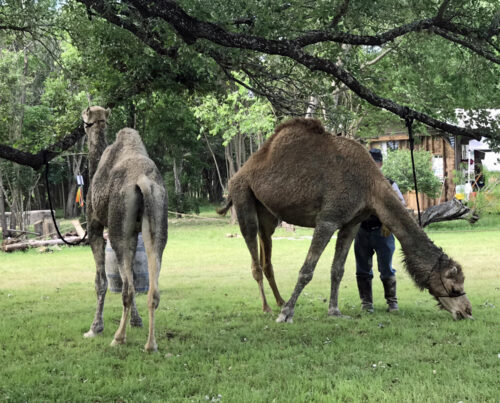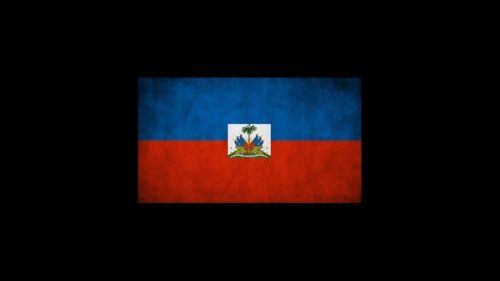
The pride of the US Army Camel Corps (21st Century Reenactor Division) At the New Braunfels Folkfest, this last weekend, on the grounds of the Heritage Village.
Some Chicago Boyz know each other from student days at the University of Chicago. Others are Chicago boys in spirit. The blog name is also intended as a good-humored gesture of admiration for distinguished Chicago School economists and fellow travelers.

The pride of the US Army Camel Corps (21st Century Reenactor Division) At the New Braunfels Folkfest, this last weekend, on the grounds of the Heritage Village.

In the wall mural of global incompetence that is our Crisis Era, Haiti has become the most lurid corner, a hallucinatory labyrinth worthy of Hieronymus Bosch; not so much the canary in the mine as a collapsed side tunnel whose maimed and trapped victims are within earshot and line-of-sight of First World institutional leaders already fumbling with a dozen groundwater leaks and toxic gas buildups in the main shafts.
My daughter and I with Wee Jamie had cause to visit Fort Sam Houston this week, to pick up some prescription refills and make a run through the commissary but before we did, we went by the historic old Quadrangle, so that my grandson could pester the deer and the peacocks and admire the enormous koi goldfish in the little landscaped fishpond. Yes, the historic limestone Quadrangle, the original structure and oldest building at Fort Sam houses a kind of petting zoo in the courtyard in the middle of three block-long ranges of buildings. That is, it would be a petting zoo if the current herd of nine deer were slightly more tame.
Towards the end of the Vietnam war, and for at least another decade after it ended, there was a trope/cliché which always could be depended on in movies and television; the whacked out, dysfunctional and traumatized veteran; sometimes a victim, often the guilty party, but always and reliably whacked-out. Even news media got into the act, now and again, interviewing theatrically dysfunctional, traumatized veterans, who on cue related how they had supped full on the horrors of the war in southeast Asia. This was so pervasive that for-real veterans for years were advised to leave periods of military service off resumes when job-hunting, and to never, never, ever advertise any connection to military service, be it with a ring, a gimme ballcap, a tee shirt, or an OD green field jacket … unless, of course, they were in the war protest movement.
Last week, in a discussion thread on a story about plans to revamp Hollywood Boulevard and make it attractive to tourists, against an apparently overwhelming tide of homelessness, addiction and petty crime, someone posted a link to this Billy Joel song. For some curious reason it struck me, since I have been saying goodbye to Hollywood the physical place, and the entertainment concept over the last couple of decades.